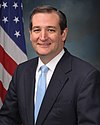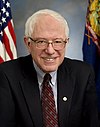POL Politiek
Discussies en diepgaande gesprekken over de politiek in de breedste zin van het woord kun je hier voeren.



De Republikeinse kandidaten
Ted Cruz - Texas
Ted Cruz presidential campaign, 2016
John Kasich - Ohio
John Kasich presidential campaign, 2016
Donald Trump - New York
Donald Trump presidential campaign, 2016
Afgevallen kandidaten:
Rick Perry
Scott Walker
Bobby Jindal
Lindsey Graham
George Pataki
Mike Huckabee
Rand Paul
Rick Santorum
Carly Fiorina
Chris Christie
Jim Gilmore
Jeb Bush
Ben Carson
Marco Rubio
De Democratische kandidaten
Hillary Clinton - New York
Hillary Clinton presidential campaign, 2016
Bernie Sanders - Vermont
Bernie Sanders presidential campaign, 2016
Afgevallen kandidaten:
Lincoln Chafee
Jim Webb
Lawrence Lessig
Martin O'Malley
Poll: Op welke republikein zou jij stemmen?
• Jeb Bush
• Ben Carson
• Chris Christie
• Ted Cruz
• Carly Fiorina
• Jim Gilmore
• Lindsey Graham
• Mike Huckabee
• Bobby Jindal
• John Kasich
• George Pataki
• Rand Paul
• Rick Perry
• Marco Rubio
• Rick Santorum
• Donald Trump
• Scott Walker
Tussenstand:
Ook een poll maken? Klik hier
Poll: Op welke democraat zou jij stemmen?
• Lincoln Chafee
• Hillary Clinton
• Martin O'Malley
• Bernie Sanders
• Jim Webb
• Lawrence Lessig
• Joe Biden
Tussenstand:
Ook een poll maken? Klik hier
OP met dank aan Odaiba en polls met dank aan Martijnde3de.
Game on. .
.
Ted Cruz - Texas
Ted Cruz presidential campaign, 2016
John Kasich - Ohio
John Kasich presidential campaign, 2016
Donald Trump - New York
Donald Trump presidential campaign, 2016
Afgevallen kandidaten:
Rick Perry
Scott Walker
Bobby Jindal
Lindsey Graham
George Pataki
Mike Huckabee
Rand Paul
Rick Santorum
Carly Fiorina
Chris Christie
Jim Gilmore
Jeb Bush
Ben Carson
Marco Rubio
De Democratische kandidaten
Hillary Clinton - New York
Hillary Clinton presidential campaign, 2016
Bernie Sanders - Vermont
Bernie Sanders presidential campaign, 2016
Afgevallen kandidaten:
Lincoln Chafee
Jim Webb
Lawrence Lessig
Martin O'Malley
Poll: Op welke republikein zou jij stemmen?
• Jeb Bush
• Ben Carson
• Chris Christie
• Ted Cruz
• Carly Fiorina
• Jim Gilmore
• Lindsey Graham
• Mike Huckabee
• Bobby Jindal
• John Kasich
• George Pataki
• Rand Paul
• Rick Perry
• Marco Rubio
• Rick Santorum
• Donald Trump
• Scott Walker
Tussenstand:
Ook een poll maken? Klik hier
Poll: Op welke democraat zou jij stemmen?
• Lincoln Chafee
• Hillary Clinton
• Martin O'Malley
• Bernie Sanders
• Jim Webb
• Lawrence Lessig
• Joe Biden
Tussenstand:
Ook een poll maken? Klik hier
OP met dank aan Odaiba en polls met dank aan Martijnde3de.
Game on.
Volkorenbrood: "Geen quotes meer in jullie sigs gaarne."


Wie bedenkt in godsnaam zo'n tactiek? Zijn campagne heeft een jaar lang alleen maar lopen klagen over de "elite" en het "establishment" en hun invloed en zodra hun boodschap door de kiezer wordt afgewezen denken ze opeens dat ze geloofwaardig zijn als ze deze route inslaan? Dit is wel bijzonder wanhopig. Nog los van het feit dat de superdelegates zich natuurlijk al helemaal bescheuren.quote:Op vrijdag 18 maart 2016 13:30 schreef L3gend het volgende:
Sanders probeert nu superdelegates te overtuigen met het argument electability.
hij wil de nominatie te winnen met behulp van de superdelegates ondanks dat Clinton meer pledged delegates zou winnen
http://www.msnbc.com/rach(...)ability-647075395544
Ik denk niet dat dit helpt, maar juist moeilijker maakt. Nu heeft Clinton als excuus om de superdelegates gebruiken om te winnen


Wat eerste NY peilingen:
quote:New York Republican Presidential Primary
Emerson
Trump 64, Cruz 12, Kasich 1
Trump +52
New York Democratic Presidential Primary
Emerson
Clinton 71, Sanders 23
Clinton +48
Volkorenbrood: "Geen quotes meer in jullie sigs gaarne."


NY is natuurlijk het thuishonk van Trumpquote:Op vrijdag 18 maart 2016 15:36 schreef L3gend het volgende:
[..]
Wut, Kasich op 1% in NY
Het is duidelijk dat de Sanders staten nu aankomen


Die kans was altijd al vrij klein, maar die is er na dinsdag niet bepaald groter op geworden nee.quote:
Volkorenbrood: "Geen quotes meer in jullie sigs gaarne."


Ik denk ook dat Trump NY makkelijk wint, maar dat Kasich op 1% zit. Ik verwacht wel dat Kasich wel de dubble digits haalt en mogelijk voor Cruz komtquote:Op vrijdag 18 maart 2016 15:51 schreef Hexagon het volgende:
[..]
NY is natuurlijk het thuishonk van Trump


FiveThirtyEight had nog wel een aardig stuk over de utopie van de Amerikaanse maakindustrie:
quote:Manufacturing Jobs Are Never Coming Back
A plea to presidential candidates: Stop talking about bringing manufacturing jobs back from China. In fact, talk a lot less about manufacturing, period.
It’s understandable that voters are angry about trade. The U.S. has lost more than 4.5 million manufacturing jobs since NAFTA took effect in 1994. And as Eduardo Porter wrote this week, there’s mounting evidence that U.S. trade policy, particularly with China, has caused lasting harm to many American workers. But rather than play to that anger, candidates ought to be talking about ways to ensure that the service sector can fill manufacturing’s former role as a provider of dependable, decent-paying jobs.
Here’s the problem: Whether or not those manufacturing jobs could have been saved, they aren’t coming back, at least not most of them. How do we know? Because in recent years, factories have been coming back, but the jobs haven’t. Because of rising wages in China, the need for shorter supply chains and other factors, a small but growing group of companies are shifting production back to the U.S. But the factories they build here are heavily automated, employing a small fraction of the workers they would have a generation ago.
Look at the chart below: Since the recession ended in 2009, manufacturing output — the value of all the goods that U.S. factories produce, adjusted for inflation — has risen by more than 20 percent, because of a combination of “reshoring” and increased domestic demand. But manufacturing employment is up just 5 percent. And much of that job growth represents a rebound from the recession, not a sustainable trend. (The Washington Post’s Abha Bhattarai had a great story this week on what the much-touted “manufacturing renaissance” really looks like through the eyes of one Georgia town.)
None of that, though, stops Donald Trump from promising at every debate and campaign stop to “take our jobs back from China and all these other countries.” Nor does it stop the other candidates from visiting factories in Southern and Midwestern towns and promising — albeit in less grandiose terms — to restore the lost luster of American manufacturing. “I’m tired of seeing them creating jobs all over the world while they’re laying off American workers,” Bernie Sanders told a crowd in Youngstown, Ohio, last weekend. “Not acceptable. That is going to end.”
There’s no mystery why candidates love to focus on manufacturing and trade. The U.S. economy faces deep structural challenges — stagnant wages, rising inequality, falling employment rates among men and other groups — and China presents an easy scapegoat. (Wall Street often plays a similar role, especially on the Democratic side.) And manufacturing in particular embodies something that seems to be disappearing in today’s economy: jobs with decent pay and benefits available to workers without a college degree. The average factory worker earns more than $25 an hour before overtime; the typical retail worker makes less than $18 an hour.
But those factory photo ops ignore an important reality: In 1994 there were 3.5 million more Americans working in manufacturing than in retail. Today, those numbers have almost exactly reversed, and the gap is widening. More than 80 percent of all private jobs are now in the service sector.
There is nothing wrong with politicians’ trying to save what remains of U.S. manufacturing, nor with trying to avoid repeating old mistakes on trade. But like it or not, the U.S. is now a service-based economy. It’s time candidates started talking about making that economy work for workers, rather than pining for one that’s never coming back.
Bern medicine?
Justified or not, railing against NAFTA seems to be popular, at least among a vocal segment of the Democratic base. So it was a bit odd that when the Progressive Policy Institute this week released a new policy agenda aimed explicitly at countering Bernie Sanders’s populist message, one of the key proposals was the liberalization of trade policy.
PPI is a centrist Democratic think tank that, while not formally affiliated with the Clinton campaign, is effectively an organ of the party establishment; it bills itself as “the original ‘idea mill’ for President Bill Clinton’s New Democrats.” Its new report was widely interpreted as a bid by centrists to show they could compete with Sanders on big economic ideas.
So what were those big ideas? In addition to free trade (including ratifying the Trans-Pacific Partnership, which Sanders and now Clinton oppose), there was a grab bag of fairly familiar progressive policies: infrastructure spending, paid family leave, improved workforce training. The handful of bolder proposals seemed unlikely to inspire popular passion: Rather than make college free as Sanders wants to, for example, PPI would encourage colleges to offer cheaper three-year degrees. PPI also wants less regulation, lower corporate tax rates and a shift away from taxing income and toward taxing spending. None of those proposals are necessarily bad as economic policy, but in a year of insurgency they seem like strange politics.
Volkorenbrood: "Geen quotes meer in jullie sigs gaarne."


Het is wel een feit dat hij meer "electable" is. Hij wordt beter gepruimd door het andere kamp en hij heeft in het verleden al van alles voor elkaar gekregen door samen te werken met Republikeinen, o.a. die oorlogsheld en oud-generaal.quote:Op vrijdag 18 maart 2016 15:28 schreef Gambetta het volgende:
[..]
Wie bedenkt in godsnaam zo'n tactiek? Zijn campagne heeft een jaar lang alleen maar lopen klagen over de "elite" en het "establishment" en hun invloed en zodra hun boodschap door de kiezer wordt afgewezen denken ze opeens dat ze geloofwaardig zijn als ze deze route inslaan? Dit is wel bijzonder wanhopig. Nog los van het feit dat de superdelegates zich natuurlijk al helemaal bescheuren.
ING en ABN investeerden honderden miljoenen euro in DAPL.
#NoDAPL
#NoDAPL


Hoe wil je met die service sector voldoende middelen uit het buitenland aantrekken?quote:Op vrijdag 18 maart 2016 16:11 schreef Monolith het volgende:
It’s understandable that voters are angry about trade. The U.S. has lost more than 4.5 million manufacturing jobs since NAFTA took effect in 1994. And as Eduardo Porter wrote this week, there’s mounting evidence that U.S. trade policy, particularly with China, has caused lasting harm to many American workers. But rather than play to that anger, candidates ought to be talking about ways to ensure that the service sector can fill manufacturing’s former role as a provider of dependable, decent-paying jobs.
ING en ABN investeerden honderden miljoenen euro in DAPL.
#NoDAPL
#NoDAPL


Nee Bram, dat is geen feit.quote:Op vrijdag 18 maart 2016 16:16 schreef Bram_van_Loon het volgende:
[..]
Het is wel een feit dat hij meer "electable" is. Hij wordt beter gepruimd door het andere kamp
Electability heeft verder weinig van doen met of 'het andere kamp', wat natuurlijk een redelijke oversimplificatie van het politieke spectrum is, je sympathiek vindt. Electability is simpelweg het antwoord op de vraag 'Hoeveel kans maakt deze kandidaat kans om in november de strijd om het presidentsschapt te winnen?'. Sympathie levert je echter geen stemmen op.
Een keertje wat samen met McCain doen neemt niet weg dat Sanders de meest partisan voting record van alle zittende senatoren heeft.quote:hij heeft in het verleden al van alles voor elkaar gekregen door samen te werken met Republikeinen, o.a. die oorlogsheld en oud-generaal.
[ Bericht 0% gewijzigd door Monolith op 18-03-2016 16:30:53 ]
Volkorenbrood: "Geen quotes meer in jullie sigs gaarne."


Definieer 'voldoende middelen uit het buitenland aantrekken'.quote:Op vrijdag 18 maart 2016 16:21 schreef Bram_van_Loon het volgende:
[..]
Hoe wil je met die service sector voldoende middelen uit het buitenland aantrekken?
Als je vraag is hoe je daarmee je handelbalans op orde kunt krijgen, vraag het Google. En dan bedoel ik niet dat je de vraag bij Google moet gaan invoeren.
Volkorenbrood: "Geen quotes meer in jullie sigs gaarne."


Dat is natuurlijk niet waar, maar zelfs als het waar zou zijn ben ik nog steeds benieuwd hoe jij zulke uitspraken goed kan praten. De kiezer stemt op Clinton, en Sanders wil nu dat de partijbonzen hem aan de overwinning helpen. Goed plan, ja? Echt?quote:Op vrijdag 18 maart 2016 16:16 schreef Bram_van_Loon het volgende:
[..]
Het is wel een feit dat hij meer "electable" is. Hij wordt beter gepruimd door het andere kamp en hij heeft in het verleden al van alles voor elkaar gekregen door samen te werken met Republikeinen, o.a. die oorlogsheld en oud-generaal.


Californie is minder liberaal dan iedereen denkt als Hollywood zien. Buiten San Fransisco is het juist een establishment/moderate bolwerk, zeker LA. De staat stemde niet zo lang geleden in referenda voor proposition 8 en tegen legalisering van softdrugs. Ook vormen minorities de meerderheid.quote:Op vrijdag 18 maart 2016 16:52 schreef Blue_Panther_Ninja het volgende:
Sanders gaat zeker winnen in CaliforniŽ.
Los Angeles County(Noord-Oosten en Zuid-Westen dan).


Nog wel een aardig stuk van FiveThirtyEight over de relatie tussen de opkomst in de voorverkiezingen en de resultaten van de daadwerkelijke verkiezingen:
http://fivethirtyeight.co(...)he-general-election/
http://fivethirtyeight.co(...)he-general-election/
Volkorenbrood: "Geen quotes meer in jullie sigs gaarne."


Wanhopig en compleet ongeloofwaardig maakt hij zichzelf op deze manier. Eerst tegen het elitaire systeem van superdelegates zijn (waar hij en zijn achterban een terecht punt heeft), maar vervolgens het wel weer willen gebruiken als hij niet de meerderheid achter zich krijgt.quote:Op vrijdag 18 maart 2016 15:28 schreef Gambetta het volgende:
[..]
Wie bedenkt in godsnaam zo'n tactiek? Zijn campagne heeft een jaar lang alleen maar lopen klagen over de "elite" en het "establishment" en hun invloed en zodra hun boodschap door de kiezer wordt afgewezen denken ze opeens dat ze geloofwaardig zijn als ze deze route inslaan? Dit is wel bijzonder wanhopig. Nog los van het feit dat de superdelegates zich natuurlijk al helemaal bescheuren.
Mocht hij toch nog de meeste pleged delegates achter zich krijgen en de superdelegates scharen zich massaal achter Clinton waardoor hij de nominatie verliest, dan moet hij ook niet meer gaan klagen.


Dat denken de Sanders supporters altijd. Omdat San Francisco er ligt en het beeld bestaat dat het een liberale staat is. Denk alleen dat het nogal tegen gaat vallen.quote:Op vrijdag 18 maart 2016 16:52 schreef Blue_Panther_Ninja het volgende:
Sanders gaat zeker winnen in CaliforniŽ.
Los Angeles County(Noord-Oosten en Zuid-Westen dan).
En dat gedoe over die superdelegates is ook nogal hypocriet.


Mooi stuk van Politco. Het 'Stop the Trump' movement is zo goed als uitgespeeld.quote:Anti-Trump forces contemplate the end
After a week of bruising losses, many Republicans are ready to give up the fight.
http://www.politico.com/story/2016/03/anti-trump-forces-contemplate-the-end-220953
quote:And even Trump’s famously high unfavorable numbers are turning around: Gallup’s tracking poll of Republicans and leaners shows that his net favorable numbers have surged 14 percentage points in the past two weeks, vaulting him past Cruz.
“It’s coming together in my opinion and will continue to do so,” said Jonathan Barnett, an influential Republican National Committee member from Arkansas. “Everyone likes a winner.”


Een staat dat in een referendum voor proposition 8 stemt en tegen legalisering van marijuana kan je niet echt liberaal noemen. LA en het zuiden van Californie barst van de moderates. Maar ja, mensen zien alleen San Fransisco en Hollywood.quote:Op vrijdag 18 maart 2016 17:15 schreef Sapstengel het volgende:
[..]
Dat denken de Sanders supporters altijd. Omdat San Francisco er ligt en het beeld bestaat dat het een liberale staat is. Denk alleen dat het nogal tegen gaat vallen.
En dat gedoe over die superdelegates is ook nogal hypocriet.
Ook vormen minorities de meerderheid in Cali
Clinton wint Cali gewoon
Ook de gedachte van de Sandersadepten dat Sanders New York kan winnen is lachwekkend
[ Bericht 1% gewijzigd door L3gend op 18-03-2016 17:32:08 ]


De kiezers zijn het establishment zo verschrikkelijk zat dat ze op zo iemand stemmen. 1 voordeel, nu kan ook onze generatie zien hoe fascisme ontstaat.quote:Op vrijdag 18 maart 2016 17:20 schreef Nintex het volgende:
[..]
Mooi stuk van Politco. Het 'Stop the Trump' movement is zo goed als uitgespeeld.
http://www.politico.com/story/2016/03/anti-trump-forces-contemplate-the-end-220953
[..]
ING en ABN investeerden honderden miljoenen euro in DAPL.
#NoDAPL
#NoDAPL


Vergeet Hollywood niet.quote:Op vrijdag 18 maart 2016 17:15 schreef Sapstengel het volgende:
Dat denken de Sanders supporters altijd. Omdat San Francisco er ligt en het beeld bestaat dat het een liberale staat is. Denk alleen dat het nogal tegen gaat vallen.
Voor zo ver je zinnige voorspellingen kan doen zou ik naast de geografische ligging vooral kijken naar twee factoren bij de Democraten: open/gesloten en caucus/primary.
Ik heb ook die indruk. We zullen het wel zien. New York is wel zijn thuisstaat, zijn Brooklynse accent en bepaalde manieren van doen accentueren dat. Dat lijkt mij zwaarder te wegen dan dat carriŤrevrouw Hillary Flipflop Rodham Clinton daar een paar jaar senator is geweest omdat dat politiek goed uitkwam voor haar. Het gesloten zijn van de verkiezing is natuurlijk wel een fors nadeel voor Sanders.quote:Op vrijdag 18 maart 2016 17:26 schreef L3gend het volgende:
Ook de gedachte van de Sandersadepten dat Sanders New York kan winnen is lachwekkend
ING en ABN investeerden honderden miljoenen euro in DAPL.
#NoDAPL
#NoDAPL


Als je dan toch Politico stukjes over Trump aan het posten bent:quote:Op vrijdag 18 maart 2016 17:20 schreef Nintex het volgende:
[..]
Mooi stuk van Politco. Het 'Stop the Trump' movement is zo goed als uitgespeeld.
http://www.politico.com/story/2016/03/anti-trump-forces-contemplate-the-end-220953
[..]
http://www.politico.com/b(...)220958#ixzz43H95JUKuquote:Wall Street Journal to Trump: 'Better be careful!'
The Wall Street Journal fired back at Donald Trump on Thursday evening, hours after the Republican candidate demanded the newspaper's editorial board apologize for pointing out that he has thus far received fewer votes compared to Hillary Clinton in the primaries.
"On Thursday the businessman demanded an apology after we—'the dummies at the @WSJ Editorial Board'—accurately noted that Hillary Clinton has received about a million more votes than he has," the board wrote in a piece headlined "A Trump Reality Check."
"The truth hurts, though Mr. Trump would rather walk down Fifth Avenue shooting the messenger," the piece continued, alluding to Trump's joke in January that he could "stand in the middle of Fifth Avenue and shoot somebody" and not lose any voters.
In a series of tweets Thursday morning, the Republican front-runner complained about the editorial board's coverage — for not the first and likely not the last time in the 2016 election cycle.
"@WSJ is bad at math. The good news is, nobody cares what they say in their editorials anymore, especially me!" Trump boasted in one, before tweeting another condemnation of the "dummies" at publication owned by Rupert Murdoch, with whom Trump has quarreled over coverage in his media properties, including the Journal (which expressed appreciation that the Manhattan real-estate magnate is "such a loyal reader").
".@WSJ Editorial says "Clinton primary vote total is 8,646,551.Trump's is 7,533,692"-a knock. But she had only 3 opponents-I had 16.Apologize," Trump tweeted Thursday morning.
Later in the evening, the paper responded, "Actually his rise has been cleared by the large and fractured GOP field. Of the 20.35 million GOP primary votes cast so far, he has received 7.54 million, or a mere 37%. Despite the media desire to call him unstoppable, Mr. Trump is the weakest Republican front-runner since Gerald Ford in 1976."
"The opinions he should care about are the 39% of GOP voters who said in Tuesday’s exit polls that they would consider supporting a third-party candidate if Mr. Trump and Mrs. Clinton are the nominees, or the 44% of non-Trump GOP voters who said they won’t cast a ballot for him in November," the editorial board concluded. "As Mr. Trump likes to tweet, better be careful!"
Volkorenbrood: "Geen quotes meer in jullie sigs gaarne."













